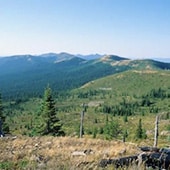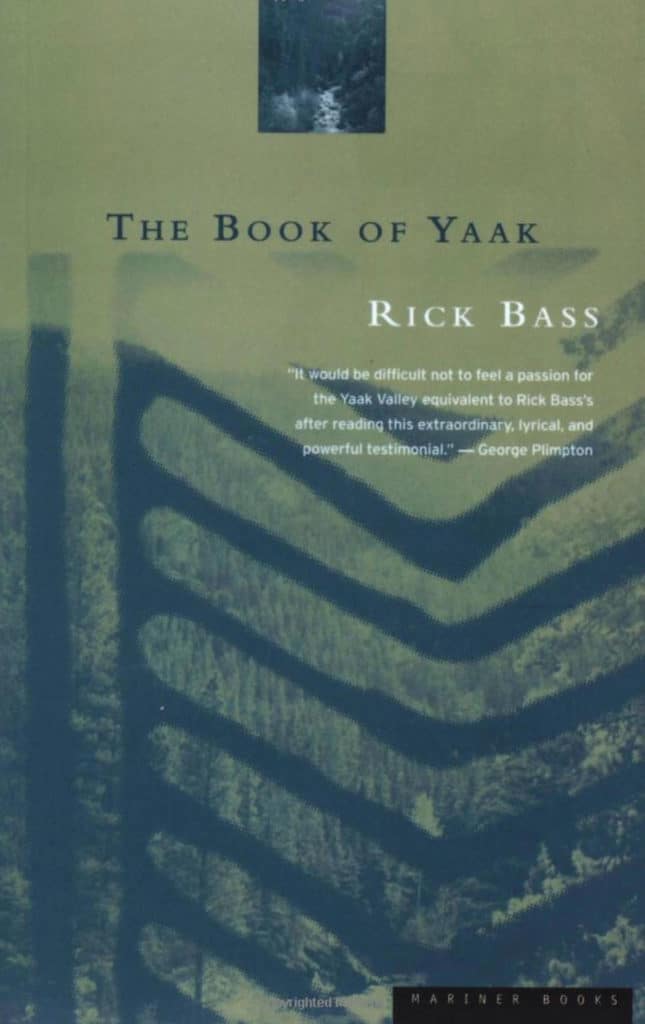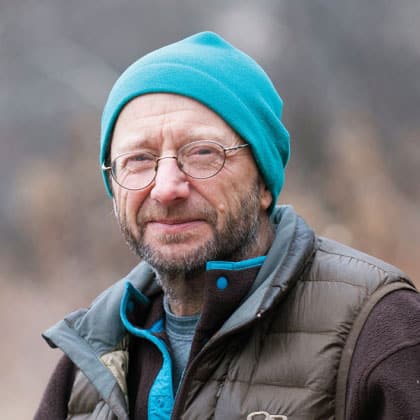The Book of Yaak: Buckhorn Ridge
The sun was orange over Buckhorn Ridge. I was working along a deer trail, noting old elk signs. The trail followed a shelf along the mountain, a southern exposure, with aspens above and below me….It was the time of day, late in the afternoon, when you are most likely to see all sorts of animals, though because of the strong wind, I did not think I would see any. Sometimes the wind was in my face, but other times it quartered from upslope, from the north. The aspen leaves were beautiful, shading to bright yellow, and they rattled in that strong wind. (56)
Rick Bass. The Book of Yaak. New York: Houghton Mifflin, 1996.



